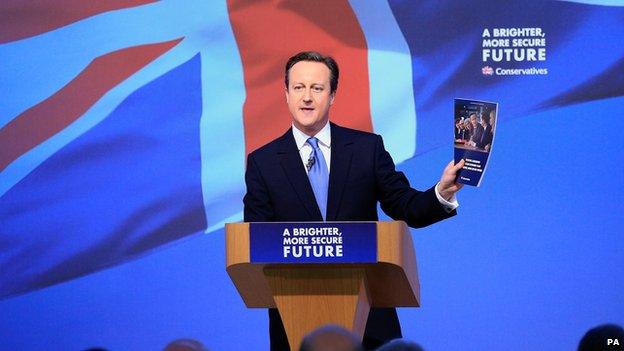Osborne: We have 'clear mandate' for EU negotiations
- Published
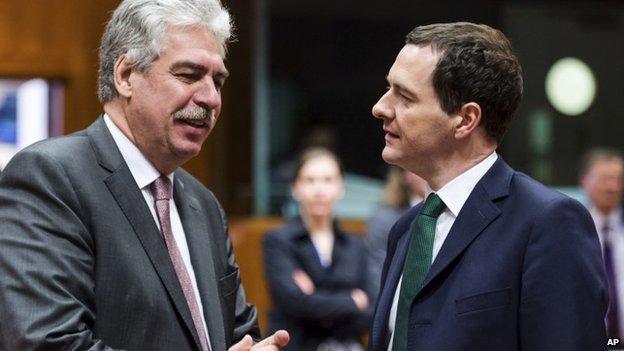
Mr Osborne says the negotiations on the UK's membership will be "constructive but firm"
Chancellor George Osborne has said the new Conservative government has a "very clear mandate" to renegotiate the UK's relationship with the European Union.
Mr Osborne, in Brussels for a meeting of finance ministers, said the UK would be "constructive but firm" in talks with EU leaders.
The UK has said it will not take part in any EU scheme to relocate migrants travelling across the Mediterranean.
The Home Office said it opposed a "mandatory system of resettlement".
The European Commission is to propose that EU member countries take in refugees under a quota scheme in the wake of the deaths of more than 800 people in a single incident when their boat capsized last month.
The United Nations estimates that 60,000 people have attempted to make the journey from North Africa to southern Europe on people smuggling boats this year already.
'Proud history'
The Home Office said the UK had a "proud history" of granting asylum to refugees from conflict zones and victims of persecution and would continue to support existing search and rescue efforts in the Mediterranean.
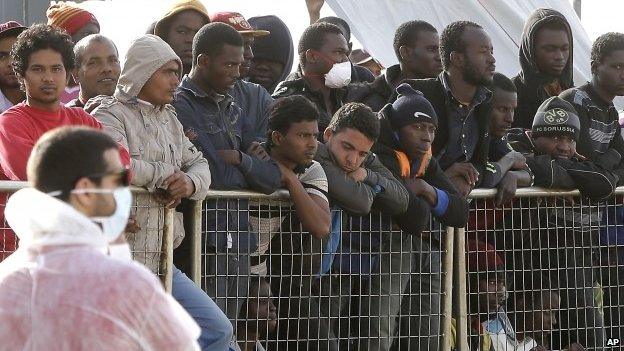
The UK has contributed £3m to search and rescue efforts while also making patrol vessels available
But it said its focus was on identifying and detaining people traffickers, improving co-operation between law enforcement agencies and making the removal of illegal immigrants more effective.
"When a new piece of legislation in the area of justice and home affairs - including asylum policy - is proposed, the UK can choose whether or not to participate in it," a spokesman said.
"We will not participate in any legislation imposing a mandatory system of resettlement or relocation."
'No doubt'
Prime Minister David Cameron has said he is confident he can secure a "better deal" for the UK in Europe, focused on returning powers to the UK Parliament, tightening welfare rules for EU migrants, accelerating the single market across Europe and ensuring the UK is not bound by moves to "ever-closer union" with the other 27 EU members.
Speaking ahead of the Ecofin meeting in Brussels, Mr Osborne said no-one should underestimate the government's determination to improve Britain's relationship with the EU and to hold a referendum by the end of 2017.
"We come here with a very clear mandate to improve Britain's relationship with the rest of the European Union and to reform the European Union so that it creates jobs and increases living standards for all its citizens," he said.
"We go into the negotiations aiming to be constructive and engaged but also resolute and firm and no-one should underestimate our determination to succeed for the working people of Britain and and the working people of the whole of the European Union."
Referendum date
Jean-Claude Juncker, the president of the European Commission, has said he will work constructively to try to secure a "fair deal" for the UK and other members and has not ruled out changes to existing EU treaties before 2020.
However, other EU governments have said they will not countenance any changes to freedom-of-movement rules, enabling citizens of EU countries to live and work in other nations.
The BBC's Alex Forsyth said that although the prospect of a referendum in the UK was not on the agenda during Tuesday's meeting it was certain to be have been discussed on the sidelines.
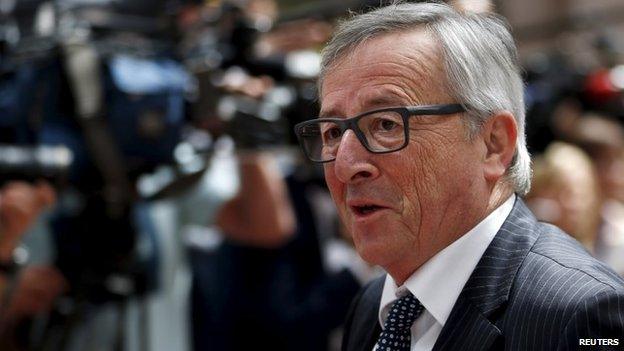
Jean-Claude Juncker has not ruled out treaty changes in future
And Austrian finance minister Hans Joerg Schelling has suggested a referendum is a way for politicians to "avoid taking responsibility".
"I think politicians have to act decisively. And when politicians believe they have to ask the people, it's an indication that they themselves are not willing to make the decisions and carry the consequences," he said.
Government sources said their position on the timing of the referendum was unchanged amid reports it could be brought forward to 2016 if negotiations concluded earlier than anticipated and legislation paving the way for a vote passed quickly through Parliament.
"If we can do it earlier we will," a No 10 spokesman said. "There has been no change in the position.
"He (David Cameron) wants treaty change. All the advice that he has had is that treaty change is required, for example in terms of some of the changes that we want to see in welfare."
As the prime minister completes his cabinet reshuffle, he is expected to confirm who will take the important role of Europe minister. David Lidington held the post between 2010 and 2015 and is in the frame to continue.
- Published11 May 2015
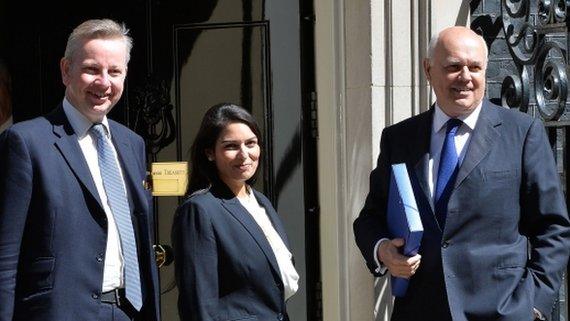
- Published17 February 2016
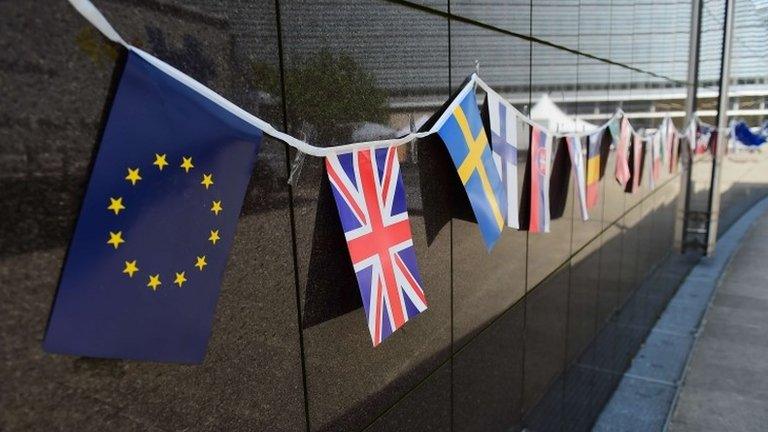
- Published11 May 2015
